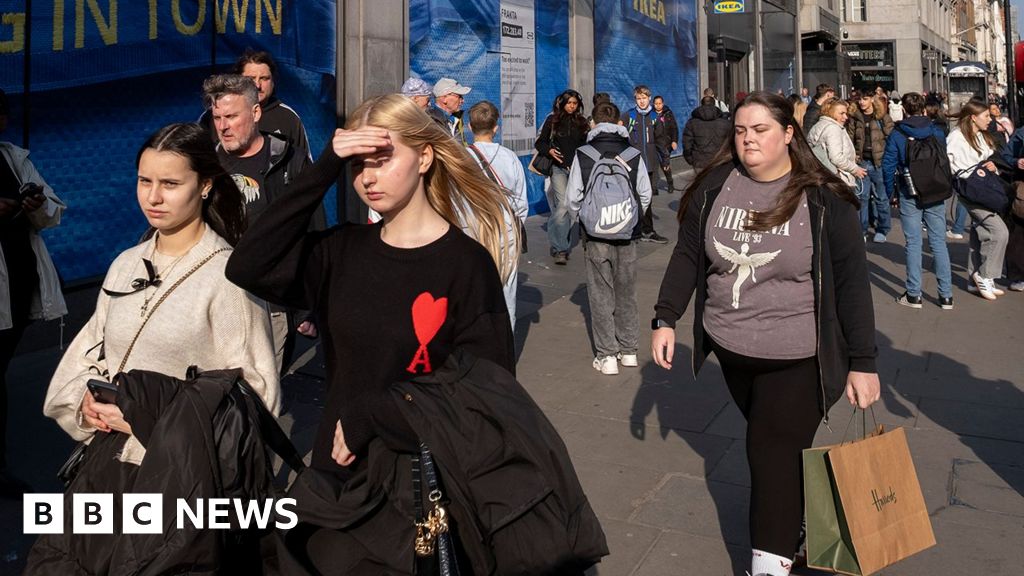The UK economy grew by more than expected in February, according to the latest official figures.
The economy expanded by 0.5%, with the services sector having a strong month, the Office for National Statistics (ONS) said.
Economists had predicted growth of just 0.1%, but the ONS said several factors contributed to the surprise rise which was driven by a boost in manufacturing and production.
The better-than-expected figures come as the UK economy braces itself for the impact of tariffs imposed on goods being imported to the US, with analysts warning that growth could prove short-lived.
The UK is subject to the blanket 10% tariff on nearly all of its goods being brought into the US, which is expected to hit British exporters and also affect economic growth.
The government has made growing the UK economy its top priority in its effort to improve living standards.
Liz McKeown, director of economic statistics at the ONS, said February’s surprise growth was due to computer programming, telecoms and car dealerships in the services sector all having “strong months”.
She added that manufacturing, electronics and pharmaceutical businesses performed well, and the car making industry also picked up after “its recent poor performance”.
Chancellor Rachel Reeves called the latest growth figures an “encouraging sign”, but added the government was “not complacent”.
“We must go further and faster to kickstart economic growth, provide security for working people and put more money in their pockets,” she added.
She said the government would “remain pragmatic and cool-headed” in its efforts to secure a trade deal with the US.
Alongside the better-than-expected growth, the ONS revised up its figure for January from a contraction of 0.1% to no growth.
But February’s figure comes ahead of the impact of tax rises on businesses and household energy and water bill increases on the economy, along with US tariffs.
Ruth Gregory, deputy chief UK economist, said the UK’s “surprisingly strong growth will prove short lived, as rises in tariffs and taxes bite”.
“The big picture is that the economy has grown in only four of the last nine months and it’s hard to see the economy strengthening much from here,” she said.
Mitchell Barnes runs a 3D printing company in Warwickshire, designing and manufacturing parts for the automotive industry.
Half of the parts made here are exported to the US.
But rather than Trump tariffs, he says it’s domestic factors that are hitting his business.
Mr Barnes says this month’s changes to National Insurance contributions and the minimum wage mean he may need to rethink his plan to create new jobs at the site.
He had hoped to increase the number of staff from 27 to 100 over the next 18 months, but has now lowered that to between 30 to 40.
The business is now looking to accelerate plans to expand in the United States instead. “Ultimately, for us, it’s all about innovating in order to control our own destiny.”
Additional reporting by Adam Woods
to keep up with the inner workings of Westminster and beyond.
Source: www.bbc.com
